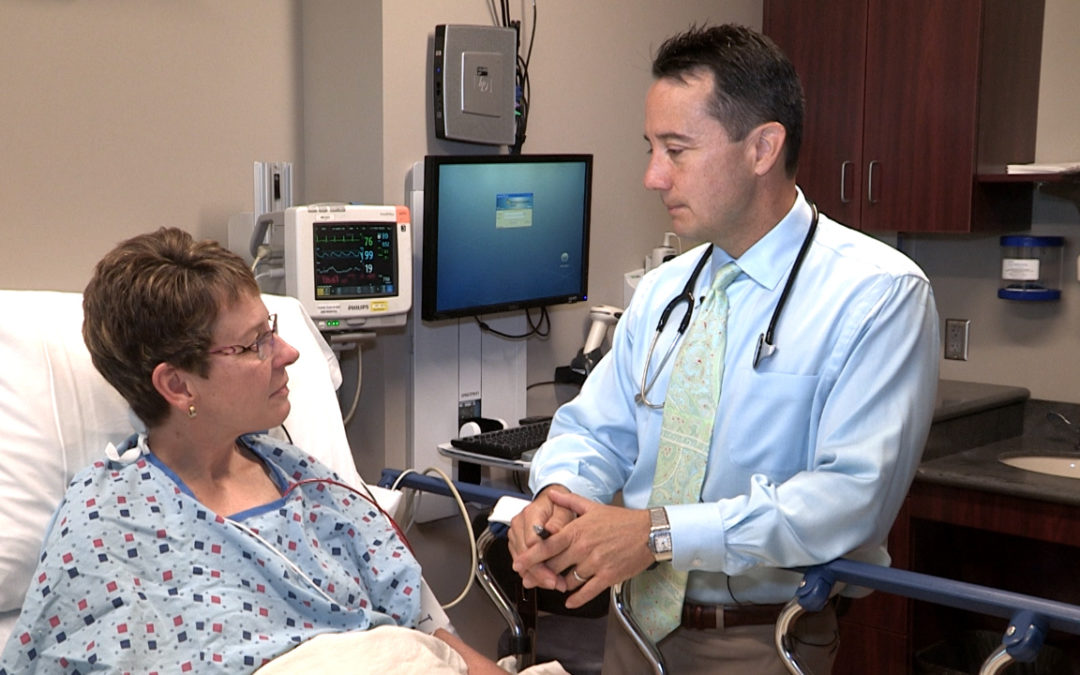Your to-do list can feel like it goes on and on when you’re a parent. Between doing the laundry, shuttling kids around town, grocery shopping, mowing the lawn, and planning birthday parties, it can feel like there are no hours left in the day to focus on the most important thing of all—your health. Because the reality is, if you don’t have your health, it’s hard to accomplish anything on your to-do list!
We know that a healthy lifestyle can prevent many health problems, such as heart disease and stroke. But did you know that making healthy choices today could decrease your risk of developing colon cancer in the future?
What Is Colon Cancer?
Most colon cancers start as a non-cancerous growth or a polyp in the inner lining of the colon. Removing polyps while they’re small can prevent colon cancer in the future. If left untreated, polyps can develop into colon cancer and spread to other parts of your body, which can make it more difficult to treat.
According to the American Cancer Society:
- Colon cancer is the third most common cancer found in men and women in the U.S.
- Colon cancer appears to be on the rise in younger adults.
- 1 in 23 women and 1 in 21 men will develop colon cancer in their lifetime.
- About 20% of all cancers, including colon cancer, are related to obesity, inactivity, excessive alcohol use and poor nutrition.
- Based on current trends, colon cancer will increase by 90% among people ages 20-34 years by 2030.
These are some worrisome statistics. So what can you do? Prevention is key. Prevention includes staying healthy, learning about your family history, and getting screened.
Health Tips to Prevent Colon Cancer
- Exercise Regularly: Aim for 30 minutes 5 to 6 days per week doing activities you enjoy like walking, dancing, practicing yoga, biking, playing sports or gardening.
- Focus on Healthy Eating Habits: Eat lots of fruits, vegetables and whole grains; limit the amount of red and processed meats you eat; and avoid excessive alcohol use (i.e., limit intake to 2 drinks per day for men and 1 drink per day for women).
- Watch Your Weight: Avoid obesity and weight gain, especially around the midsection.
- Don’t Smoke: If you need help quitting, Bryan LifePointe offers classes that provide tobacco cessation support.
Learn About Your Family’s Health History
Some risk factors can be controlled with a healthy lifestyle. Other risk factors cannot be changed. However, it’s important to know about them as this can impact other steps you take.
Risk factors you cannot change include:
- Age
- Family history of polyps or colon cancer
- Inflammatory bowel disease (such as Crohn’s or ulcerative colitis)
- Diabetes
- Race or ethnicity (such as being African-American or Ashkenazi)
- Inherited syndromes
Do you have any of these risk factors? If you aren’t sure, start having these conversations today with your family or your doctor. Learning more about your family history is crucial in determining how early you should have your first colon cancer screening and ongoing screenings.
Schedule a Colon Cancer Screening
Screening tests are used to find an abnormality, such as a polyp, before it becomes cancer or at the earliest stage possible. Examples of screening tests include stool testing, sigmoidoscopy, colonoscopy, double contrast barium enema, and CT colonography.
Starting at age 45—or sooner if you have risk factors—women and men should start screening for colon cancer. Talk to your doctor about which screening is right for you.
Your family counts on you to be there for them in many ways. The best way you can do that is to make your health a priority! Add these important preventative strategies to your to-do list today: stay healthy, learn about your family health history and get screened.

Carrie Waltemath, RN
Health Expert
Learn More About Colon Cancer Screenings
The colonoscopy. Everyone dreads this screening for colon and colorectal cancer. But is there really so much to dread? Find out for yourself as you take a journey through the screening with Bryan patient Ruth Van Gerpen and her doctor, Mark Griffin, MD, gastroenterologist. Hear about the prep, see the actual procedure and how potential polyps can be discovered, and find out when you should get this screening based on your age or family history.








